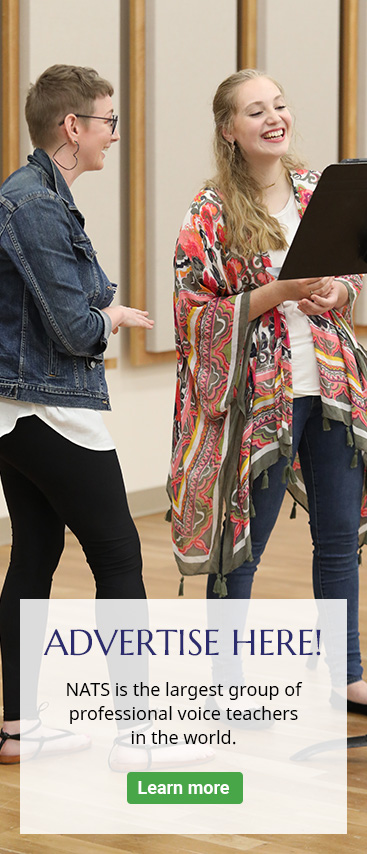What's New > Perspectives From a Teen Singer
 |
Music educators recognize that the power and influence of music can have a profound impact on people of all ages. However, a common topic of controversy among voice teachers is the age at which a child should be accepted into the studio as a student. While many educators believe that if a child is disciplined and determined, their age should not be a factor into allowing them to take lessons, other teachers prefer to not work with students younger than 14. Little do they know how fun and rewarding it can be for both the student and the teacher.
I began taking voice lessons when I was nine years old. I didn’t take an interest in it because my parents urged me to, or because I was just bored. Rather, I knew from a very young age that all I wanted to do for the rest of my life was sing and perform. When I first started lessons, I had severe performance anxiety and it was keeping me from singing in a group class. It angered me that something like stage fright would hold me back from doing what I loved.
With encouragement from my teacher, however, I conquered my fear and was performing in another group class exactly two weeks later. In just that first month of lessons, I gained confidence in an area that had always racked me with nerves. This proved to be a powerful foundation for my journey into a lifetime of involvement in music.
Now, as a freshman in high school, I participate in multiple choirs, performance groups and musicals. I find myself presented with amazing opportunities thanks to the musical education I received as a child. Many people are surprised when I tell them the age at which I began taking voice lessons. How, they ask, did I manage to juggle my homework, social life, extracurricular activities and sports -- all while keeping a career in singing on the horizon?
They share the concern of many voice teachers: Will beginning lessons at a young age take away the student’s love of music? Will the competitions, festivals and long rehearsals negatively affect the student’s motivation and happiness? No teacher wants to be responsible for that. However, this concern clouds the fact that voice lessons can, in fact, build confidence, character and determination in children. Many students will agree with me when I say that taking voice lessons has made me a better singer and a better person. It is also the right of the student -- no matter what their age -- to pursue their love for singing and see where it takes them in their lives.
Another reason some teachers are hesitant to teach children is because of the child’s lack of experience in singing. They believe that it’s better to let the child explore his or her interest in music for a while before committing to lessons, therefore avoiding the student’s potentially short-lived time with the studio. This saves both the student and teacher a lot of time and energy. Even so, the teacher could be missing out on a valuable experience. Every teacher is different, and it’s their decision whether or not to let children take lessons. Teaching young children is extremely gratifying, and to see how far they’ve come at the end of their time at the studio can be immeasurably rewarding.
As a teacher, your passion for music is a powerful tool of influence in the lives of your students. Electing to teach and mentor young people can be an opportunity to impart that passion and shape their perspective on how they choose to incorporate music into their lives.
Akemi Takahashi is a freshman at Sammamish High School in Bellevue, Washington, studies voice with Nancy Bos, and recently performed with the Honors Performance Series at Carnegie Hall. She intends to pursue a career in singing and the performing arts.
This article first appeared in the "Independent Voices" section of the Spring 2016 edition of Inter Nos, the semiannual publication that provides important information about the work of NATS to its members. Each issue of Inter Nos includes the "Independent Voices" section, focused on the work of independent teachers. View the current issue of Inter Nos here.

